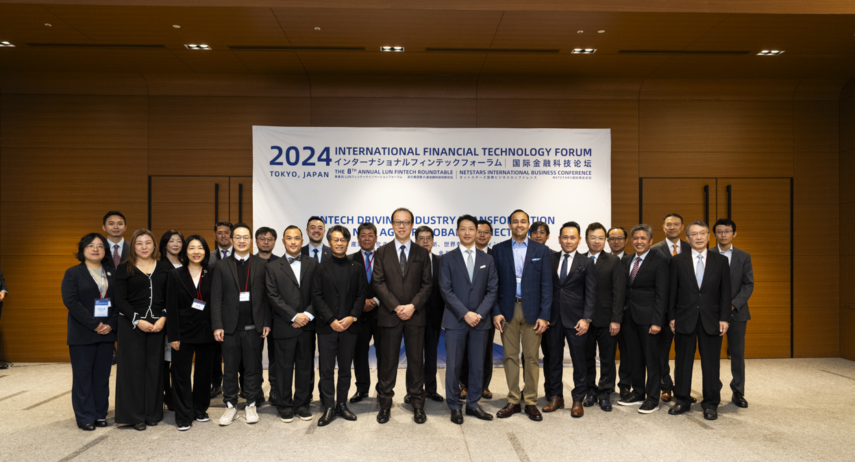
On November 20th, the 2024 International Financial Technology Forum and the 8th Annual LUN FinTech Roundtable was successfully held at TOKYO MIDTOWN YAESU in Tokyo, Japan.
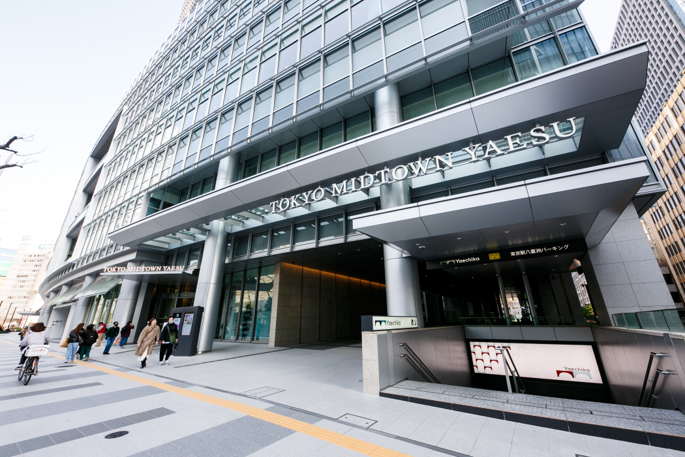
This year’s forum was co-hosted by LUN Partners Group, NETSTARS, and Cango Inc., with forum supporting partners including Hong Kong Cyberport, Fudan International School of Finance, ACI Worldwide, Octa Innovations, and Onafriq Asia. This year’s forum centered on “FinTech Driving Industry Transformation in a New Age of Global Connectivity”, with experts from academia and industry from around the world sharing their insights, ideas, and future outlook through keynote presentations and roundtable discussions.
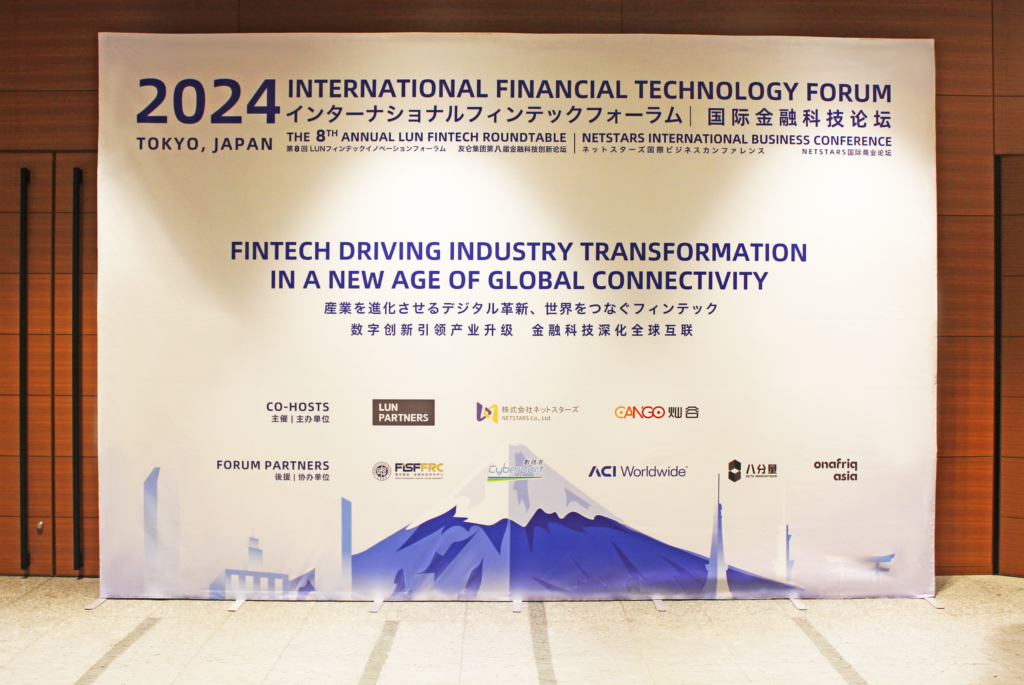

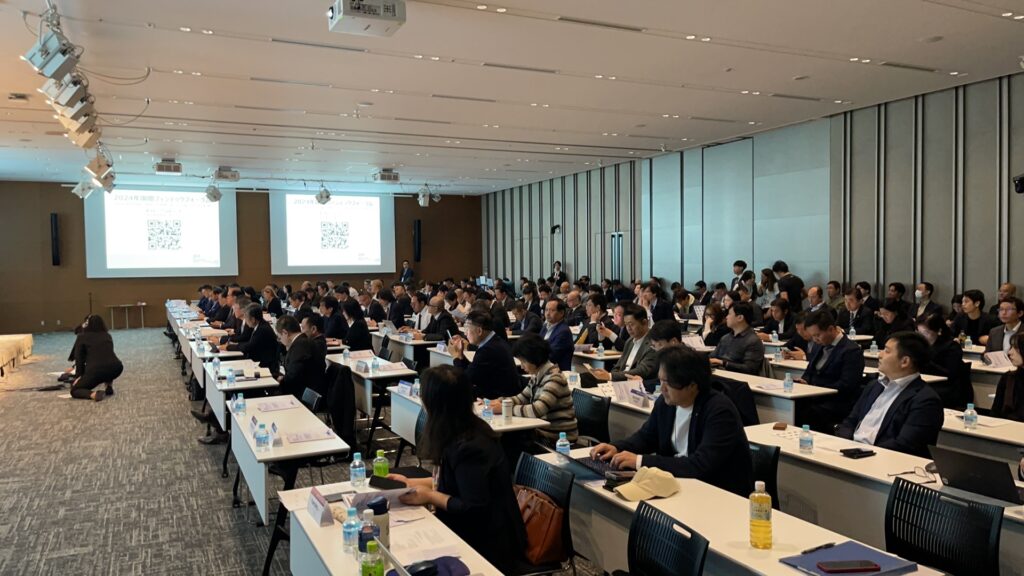
Mr. Tsuyoshi Ri, Founder and CEO of NETSTARS, delivered the opening remarks for the morning session, extending a warm welcome to all speakers, attendees, and international guests. He emphasized the forum’s focus on fintech innovation and transformation and explored the impact of digital trends on the broader financial industry. In designing the event’s agenda, there was a concerted effort to feature key topics such as digital payments, digitalization strategies for society, and international collaboration, providing industry leaders and policymakers a platform to share their insights.
Mr. Ri highlighted the global perspective of the forum, aiming to foster closer connections between Japan and the rest of the world while supporting businesses, particularly Chinese enterprises, in establishing a presence in Japan. He also underscored the significance of Web 3.0 as a critical pillar of the future economic system, emphasizing its transformative potential for fintech and industrial evolution. Mr. Ri expressed hope that the forum would inspire innovative ideas and drive new growth for Japan and the global economy through meaningful communications and exchanges.
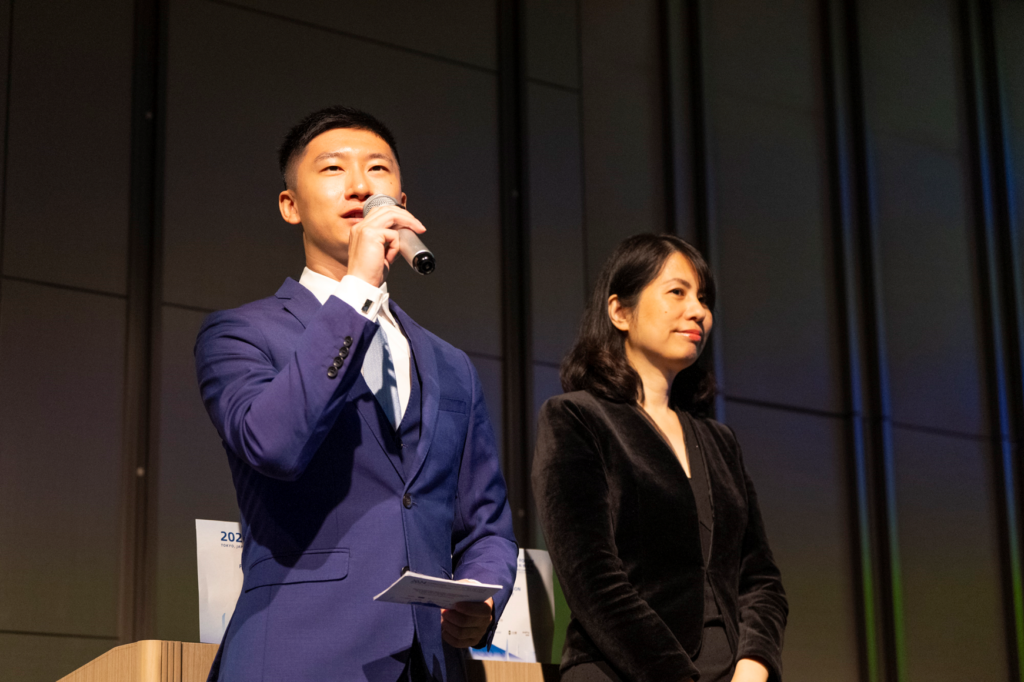
(Event Hosts: Left: Tony Lu, Investment Manager at LUN Partners Group; Right: Yuan Jing, Founder of Kouraku Japan)
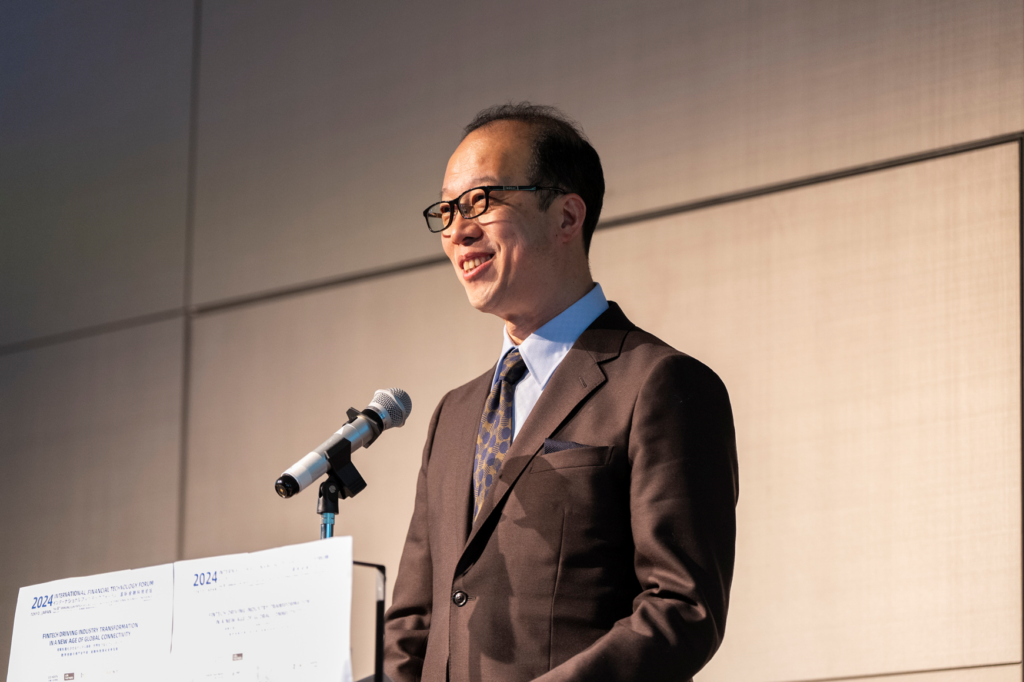
(Tsuyoshi Ri, Founder and CEO of NETSTARS)
Mr. Tokio Morita, Former Director-General of the Strategy Development and Management Bureau and Vice Commissioner for International Affairs of the Financial Services Agency, delivered a keynote on “Digitalization of Finance and FinTech Trends in Japan”. He noted that Japan’s cashless payment rate has increased from a long-standing 20% to nearly 40% now at the end of 2024, with innovations in digital wage disbursement and global stablecoin regulation establishing an internationally leading model. In addition, he stated the importance of legal reforms and AI technology in financial services, calling for international cooperation to address risks and encouraging global innovators to enter the Japanese market to promote the sustainable development of FinTech.
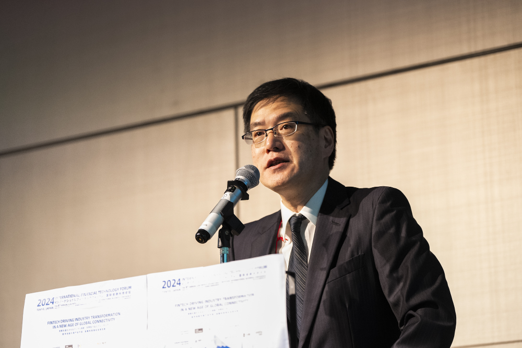
(Tokio Morita, Former Director-General of the Strategy Development and Management Bureau and Vice Commissioner for International Affairs at Financial Services Agency)
Mr. Soichi Nagamatsu, Chairperson of the New Media Development Association and Former Deputy Director-General of the Cabinet Office, delivered a keynote on “Japan’s Digital Society Strategy and FinTech”. He pointed out that after experiencing the “Lost 30 Years”, Japan has faced a decline in both global competitiveness and digital capabilities. To accelerate its transformation, Japan has introduced the “Society 5.0 Vision”, which integrates the physical and digital worlds, leveraging technologies such as artificial intelligence and big data to improve both economic and social outcomes. In the financial sector, cashless payments and fintech have become key strategies, with Japan setting a goal to achieve 80% cashless payments in the future.
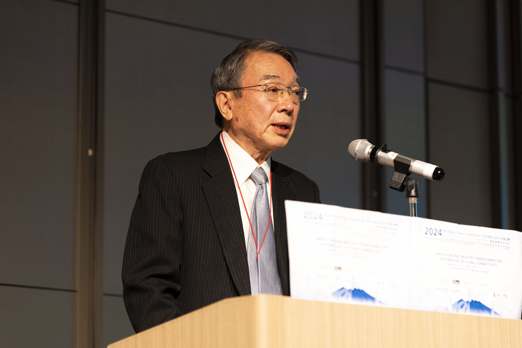
(Soichi Nagamatsu, Chairperson of the New Media Development Association and Former Deputy Director-General of the Cabinet Office, Government of Japan)
During the first roundtable discussion, Mr. Hisahiro Chofuku, Director and Chief Operating Officer of NETSTARS, Mr. Yoshio Fukuda, General Director of Payments Japan Association, Mr. Dudi Dermawan Saputra, Director of Bank Indonesia – Payment System Department, and Ms. Mayu Suzuki, Director of Payments Japan Association discussed “JPQR and Global QR Code Payment Standard Integration, Advantages, and Internationalization Prospects”. They explored topics such as “The Global Popularization and Security Optimization of QR Code Payments” and “The Role of JPQR Standardized Payment Systems in Driving Digital Transformation for Small Merchants.” The discussion emphasized that the key to promoting JPQR and QR code payments lies in collaboration between governments, businesses, and financial institutions, and a coordinated effort to accelerate the standardization of payment systems and drive the development of the digital economy.
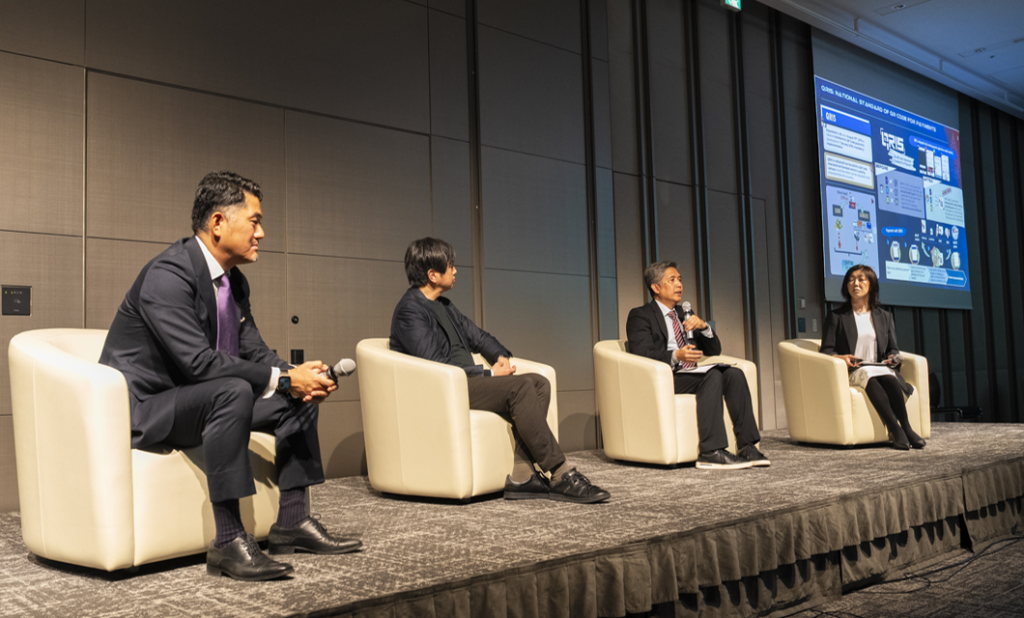
(From left to right: Hisahiro Chofuku, Yoshio Fukuda, Dudi Dermawan Saputra, and Mayu Suzuki.)
Mr. Peilung Li, Founder and Chairman of LUN Partners Group delivered the opening remarks for the afternoon session as the representative of the forum’s hosts. In reflecting on the founding purpose of LUN Partners’ International Fintech Forum and its development over the past eight years, Mr. Li expressed gratitude to the attendees and partners for their continued support. He pointed out that while last year’s forum was held at Hong Kong Cyberport, this year’s forum has moved to Tokyo, co-hosted with NETSTARS, a portfolio company of LUN Partners Group, and Cango Inc., a strategic partner, marking a significant milestone and demonstrating the continued expansion of the forum’s scale and influence.

(Peilung Li, Founder and Chairman of LUN Partners Group)
When discussing the global economic situation, Mr. Li mentioned that in such a volatile and uncertain world, he believes this year marks both a trough in the economic cycle and an opportunity for industrial transformation, with Asia still showing immense potential. He identified five major trends:
1) Opportunities for business internationalization – Consumer markets in Southeast Asia and Africa continue to expand and Chinese companies will leverage existing advantages in industry and supply chain to capture opportunity of globalization and localization when expanding into overseas markets.
2) Rapid accumulation of wealth and economic power in Asia – This has driven increased demand for global, diversified, and customized investments, making Asia the next growth engine for global asset management.
3) Asia’s leadership in mobile payments – With high penetration rates and vast cross-border payment needs and various user cases, Asia will lead and build a new global payment ecosystem.
4) The digitalization and smart transformation of Asia’s supply chain – As the global supply chain is primarily based in Asia, supply chain finance will experience significant growth due to the upgrade of Asian supply chains through digitalization and the use of AI.
5) Increased foreign investment in Japan – Under the context of global supply chain restructuring and trade friction, combined with Japan’s ultra-low interest rates and continued depreciation of the yen, Japan is poised to experience large inflows of foreign capital and a new wave of digital transformation opportunities.
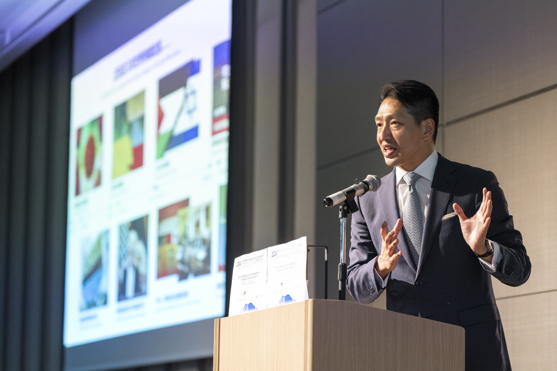
(Peilung Li, Founder and Chairman of LUN Partners Group)
Mr. Vinay Mendonca, CEO of Semfi by HSBC (former Chief Growth Officer of HSBC’s Global Trade and Receivables Finance (GTRF) division) gave a keynote on “Digital Transformation and FinTech Innovation of Global Commercial Banks”. He introduced the importance of digital transformation in banking for the development of global business, and shared HSBC’s practices in enhancing system resilience, optimizing customer experience, and innovating risk management. He also introduced Semfi, HSBC’s newly established fintech company, which has partnered with Tradeshift, a portfolio company of LUN Partners, to launch seamless business financing solutions that streamline processes while ensuring compliance and scalability. Finally, he stated that Semfi will begin its expansion in Europe and gradually extend to Asian markets, including Hong Kong, to drive the digital transformation of the global banking industry.
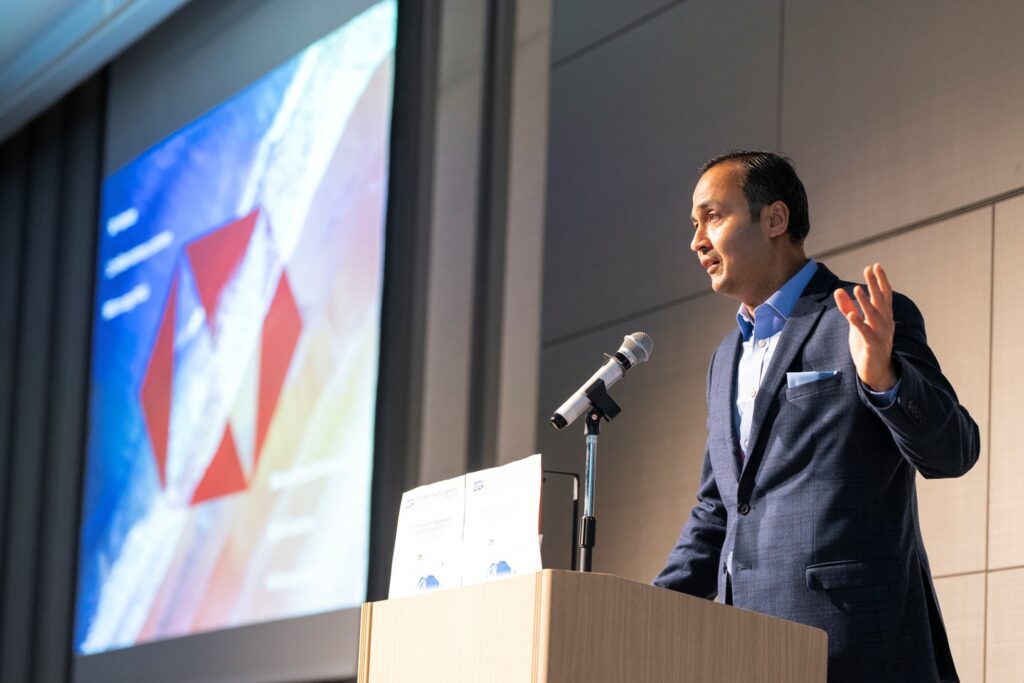
(Vinay Mendonca, CEO of Semfi by HSBC)
Mr. Mark Cheng, North Asia Vice President of ACI Worldwide spoke on “Connecting Japan with the World’s Payments Ecosystem”. Mr. Cheng shared how improvements in e-commerce and payment infrastructure have created globalization opportunities for Japanese businesses, and how the unification of global payment standards have enhanced payment efficiency. He also emphasized the importance of data security and compliance, particularly in fraud prevention. Additionally, he introduced how ACI, through close collaboration with Japanese partners, is driving payment innovation and simplifying infrastructure to support the efficient interconnection of the global payment ecosystem.
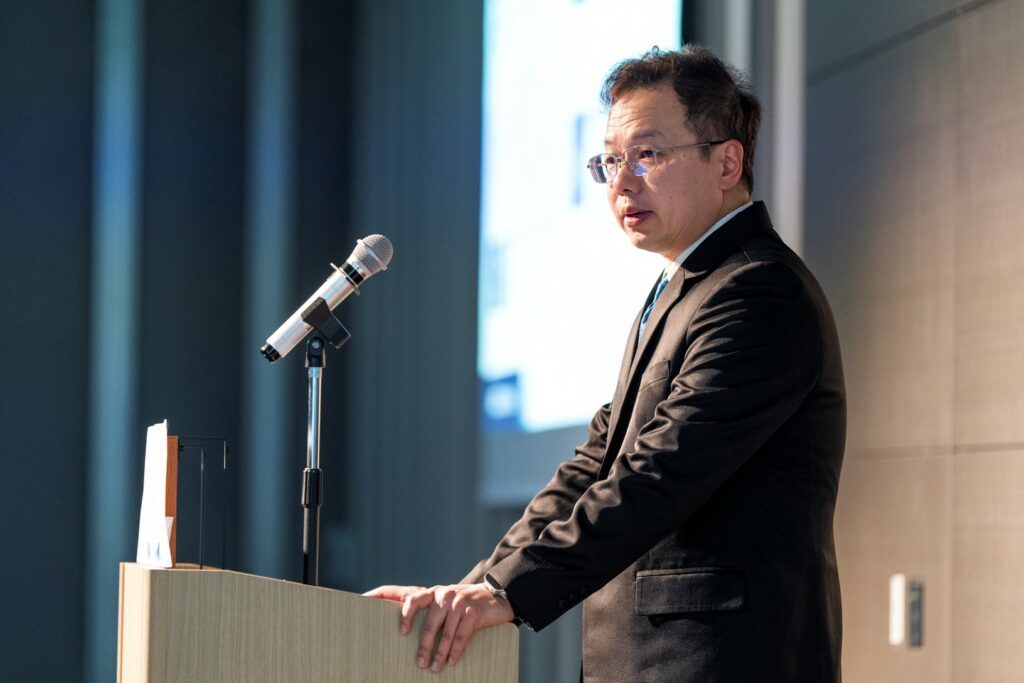
(Mark Cheng, North Asia Vice President of ACI Worldwide)
The second roundtable regarding “Fostering an Entrepreneurial Ecosystem, Empowering Overseas Enterprises in Japan” was hosted by Mr. Jack Xie, Executive Producer of NETSTARS, with panelists including Mr. Haofei Liu, Founding Partner of Peakview Capital, Mr. Jim Lai, Chairman and CEO of Hues Capital Management Limited, Mr. Leslie Choo, Asia Pacific Senior Vice President and Managing Director of ACI Worldwide, Mr. Terumitsu Kishigami, Global Business Department General Manager of Yamada Consulting Group, and Mr. Thomas Cheng, Chairman of Japan IWITH ROBOTICS. The roundtable explored several key themes, including “How overseas companies can integrate into the Japanese market and achieve long-term development through technological innovation, cultural adaptation, and capital cooperation,” “The importance of interconnectivity in the payment ecosystem, cross-border investment strategies, and localized operations,” as well as “The cultural characteristics of the Japanese market, the value of integrity, and the important role of partners.”
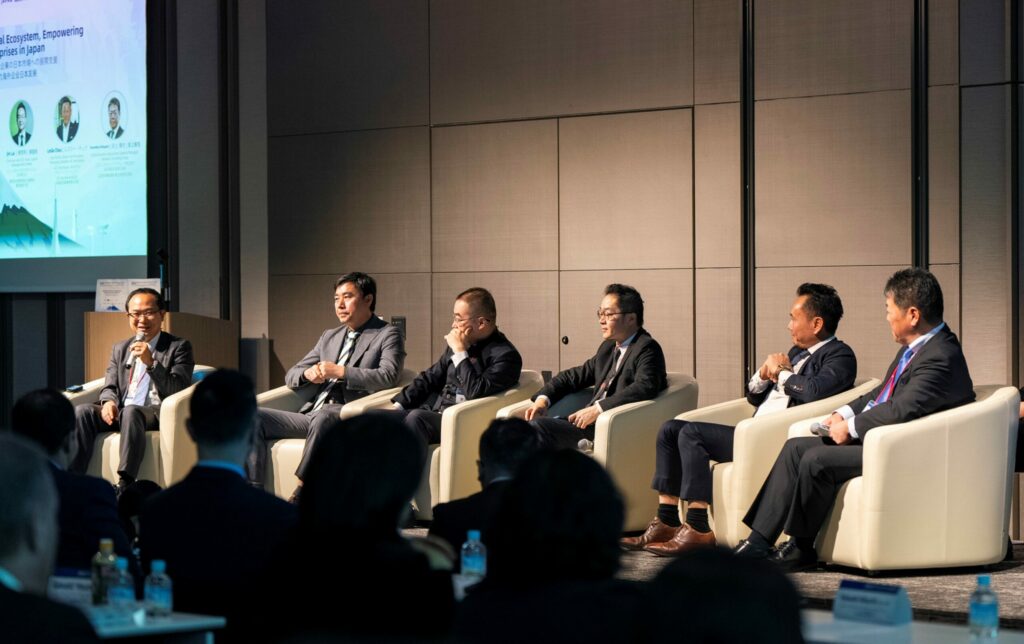
(From left to right: Jack Xie, Thomas Cheng, Haofei Liu, Jim Lai, Leslie Choo, and Terumitsu Kishigami.)
Mr. Alex Ypsilanti, Founder and CEO of Quantifeed gave insights into the “Trends in Digital Wealth Management in Asia and Japan”. Mr. Ypsilanti shared Quantifeed’s innovative practices in digital wealth management, using the “Mirai Value” app developed in collaboration with Mitsubishi UFJ Bank as an example to explain how it helps new investors easily diversify their investments globally. Additionally, he emphasized the potential of generative AI and large language models in improving the efficiency and personalization of advisory services, as well as in integrating technology with human expertise to provide inclusive wealth management services to a broader range of investors.
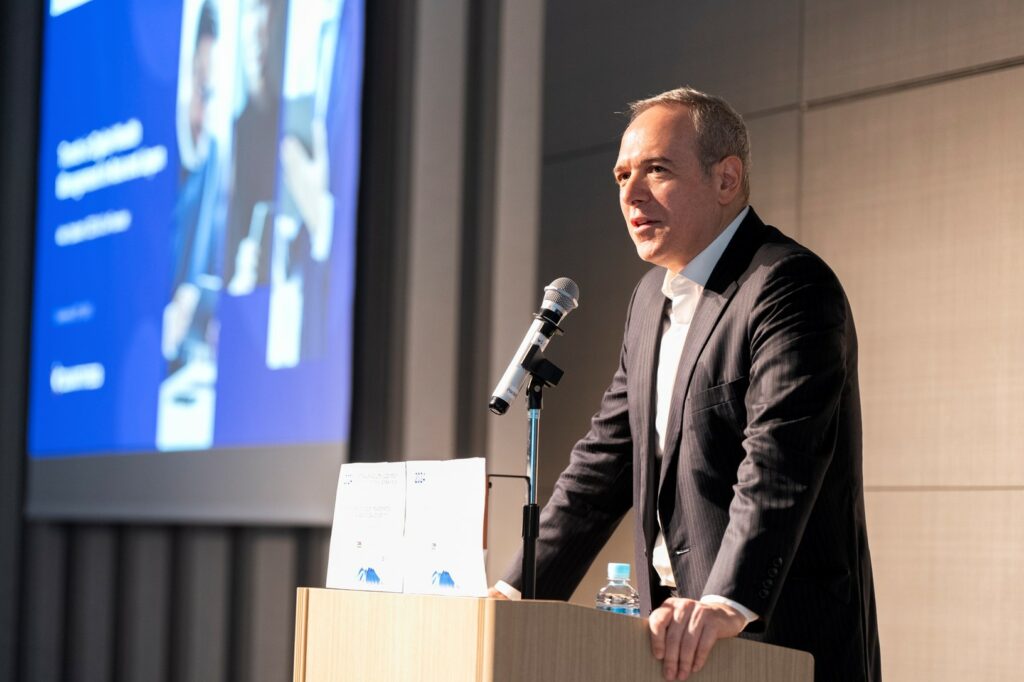
(Alex Ypsilanti, Founder and CEO of Quantifeed)
Mr. Takaaki Kikuchi, President and Representative Director of Tradeshift Japan gave a keynote on “Developments in Global E-invoicing and Innovative Solutions to Maximize Value”. Mr. Kikuchi shared the global trend of digital invoicing and its impact on business and finance. He pointed out that digital invoices, through its structured digital data, enable automated processing, which reduces manual input, improves efficiency, and lowers costs. He also mentioned that several countries in Europe, Latin America, and Asia have already implemented digital invoicing, with notable success in countries such as China and India. He anticipated that Japan would gradually adopt digital invoicing, leading to greater transparency and improved efficiency in tax and financial sectors.
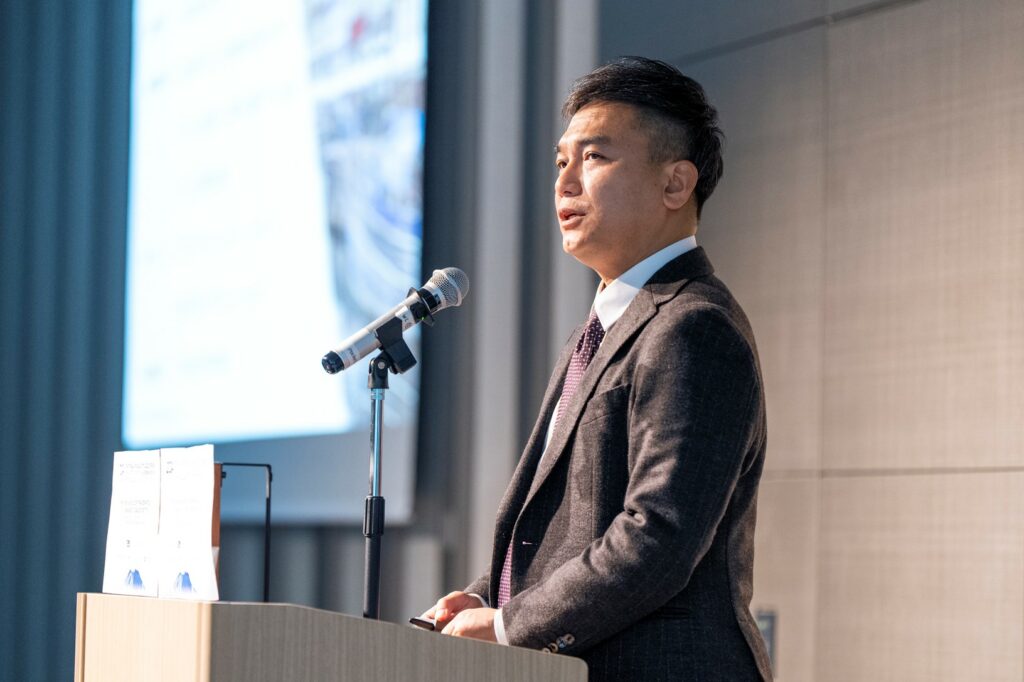
(Takaaki Kikuchi, President and Representative Director of Tradeshift Japan)
The third roundtable regarding “Financial Digitalization Empowering Global Value Chain Connectivity” was hosted by Mr. Gerald Yeung, CEO of LUN Partners Asset Management (HK), and joined by several panelists including Mr. Calvin Lui, Co-founder of Binery Limited and Pintar Global, Ms. Lan Luo, Co-founder of LinxForce International, Ms. Michele Fung, General Manager of Lianlian Global, and Mr. Takaaki Kikuchi, President and Representative Director of Tradeshift Japan. The group discussed a range of subjects, including the future trends in supply chain digitization, highlighting the importance of collaboration, FinTech, and AI technologies. They also addressed the challenges of global compliance and how digital platforms can adapt to the business practices of different countries. Finally, the participants explored the future opportunities for global supply chain connectivity, concluding that digital supply chain collaboration is central to the interconnectivity of global industrial value chains.

(From left to right: Gerald Yeung, Calvin Lui, Lan Luo, Michele Feng, and Takaaki Kikuchi.)
Mr. Charles Chang, The Deputy Dean of Academics of Finance at Fudan International School of Finance delivered the keynote on “The Current State of Web 3.0 and Industry Use Cases”. Mr. Chang shared the core concepts of Web 3.0, including decentralization, user-generated content (UGC), and ownership in virtual worlds, while pointing out the current challenges in technology and regulation. Additionally, he introduced examples of blockchain technology applications in FinTech, the Internet of Things (IoT), and other sectors, emphasizing the importance of global payments and data privacy.
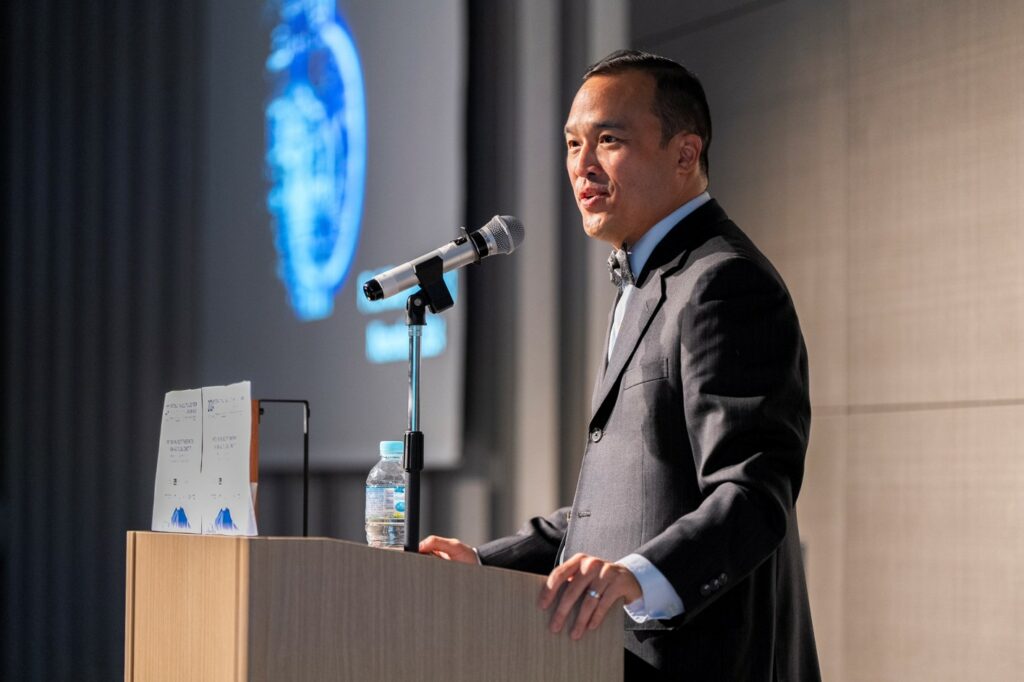
(Charles Chang, The Deputy Dean of Academics of Finance at Fudan International School of Finance)
Mr. Hiroyuki Sato, COO of Digital Platformer Corporation, spoke on “The AI Economy: A New Frontier at the Intersection of AI, Web 3.0, and FinTech”. Mr. Sato shared the application of blockchain technology in cross-border payments and decentralized platforms, particularly highlighting the experience of collaborating with a Japanese bank to issue the first bank-backed stablecoin. He emphasized that AI and encryption technologies will facilitate the circulation of digital currencies and enhance transaction security. Additionally, he pointed out that future financial services will rely on self-sovereign identities and decentralized platforms, driving the development of a more secure and decentralized financial system.
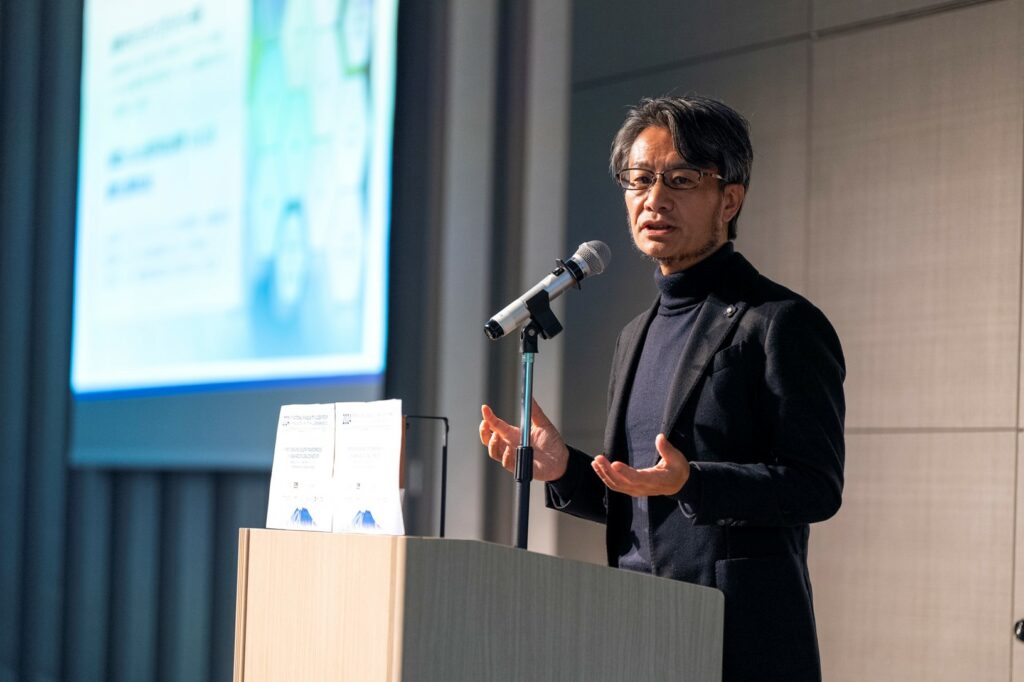
(Hiroyuki Sato, COO, Digital Platformer Corporation)
The fourth and final roundtable discussion on “Global Innovation Opportunities of Digital Assets and Web 3.0” was hosted by Mr. Charles Chang, the Deputy Dean of Academics of Finance at Fudan International School of Finance, and was joined by several panelists including Mr. Chuck Chen, Director and CTO of NETSTARS, Mr. Victor Yim, Head of FinTech at Hong Kong Cyberport, and Mr. Hiroyuki Sato, COO of Digital Platformer Corporation. During the panel, they discussed the Hong Kong government’s supportive measures in the digital asset sector, emphasized the distinction between digital currencies and digitalized currencies, and explored the potential of digital currency technology in promoting sustainable development. The discussion covered various aspects, from technological applications to regulatory strategies, providing a comprehensive perspective on the future of digital assets.
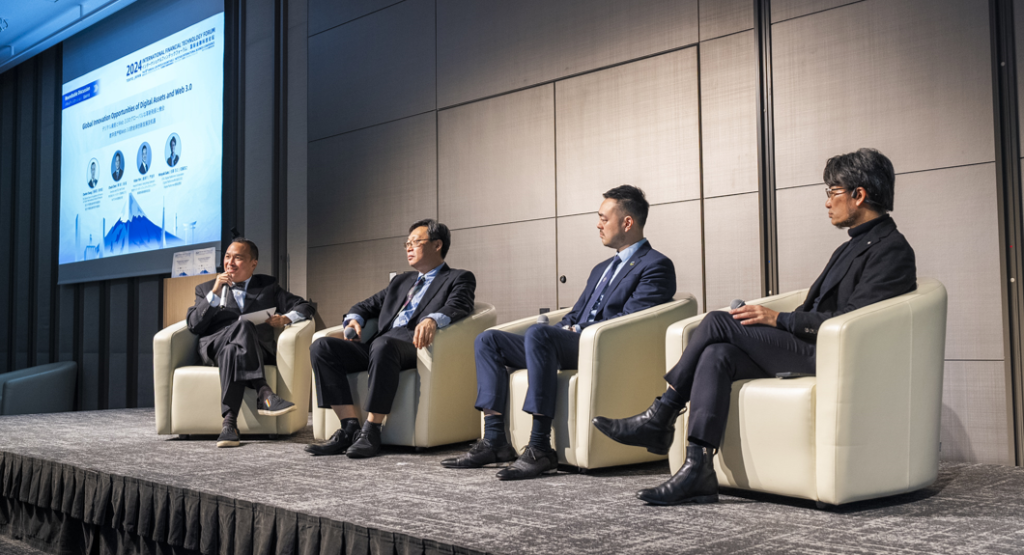
(From left to right: Charles Chang, Chuck Chen, Victor Yim, and Hiroyuki Sato.)
The forum concluded with closing remarks from Mr. Kaede Kotsuki and Ms. Carrie Chen, Partners of LUN Partners Group.
Mr. Kotsuki shared the three wishes he had when LUN Partners invested in NETSTARS: first, that NETSTARS would become a leading company in Japan’s payment industry; second, that NETSTARS would go public as a fintech company in Japan; and third, that NETSTARS would become a core enterprise within LUN Partners’ fintech ecosystem and co-host a fintech forum in Japan with LUN Partners. He expressed his delight and gratitude that all these wishes had been fulfilled and that more opportunities for collaboration would follow.
Ms. Chen emphasized the importance of collaboration and synergy in business development, noting that valuable synergies can be achieved through different strategic and executional approaches. She highlighted LUN Partners’ continued commitment to leveraging the diverse backgrounds of its team to serve as a bridge within the ecosystem and playing a key role in fostering connection and partnership between enterprises from Asia and the rest of the world.
Both Mr. Kotsuki and Ms. Chen wished all participants continued success and looked forward to the forum’s role as a hub of collaboration between Asia and the global fintech community.
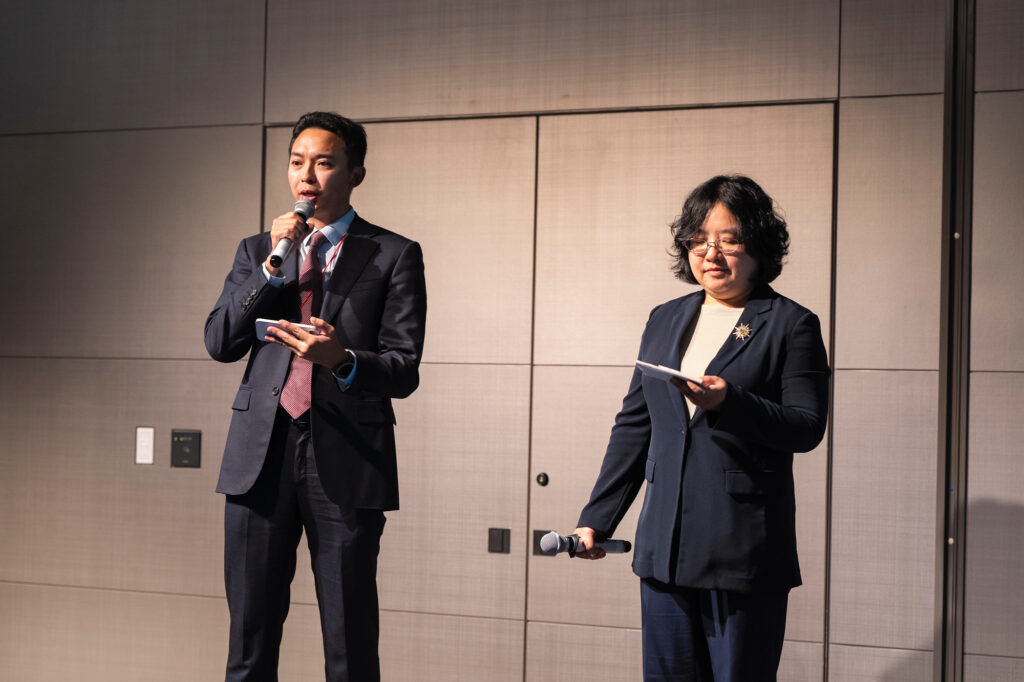
(Left: Kaede Kotsuki, Partner of LUN Partners Group, Right: Carrie Chen, Partner of LUN Partners Group)
After nearly 8 hours of thought-provoking discussions and lively exchanges, the forum came to a close with the audience in full attendance. LUN Partners would like to express sincere gratitude to the co-hosts, supporting partners, participating companies, and guests for their contributions to the 2024 International Financial Technology Forum and the 8th Annual LUN FinTech Roundtable. LUN Partners will continue to grow its global ecosystem and looks forward to hosting all delegates again at next year’s event.


